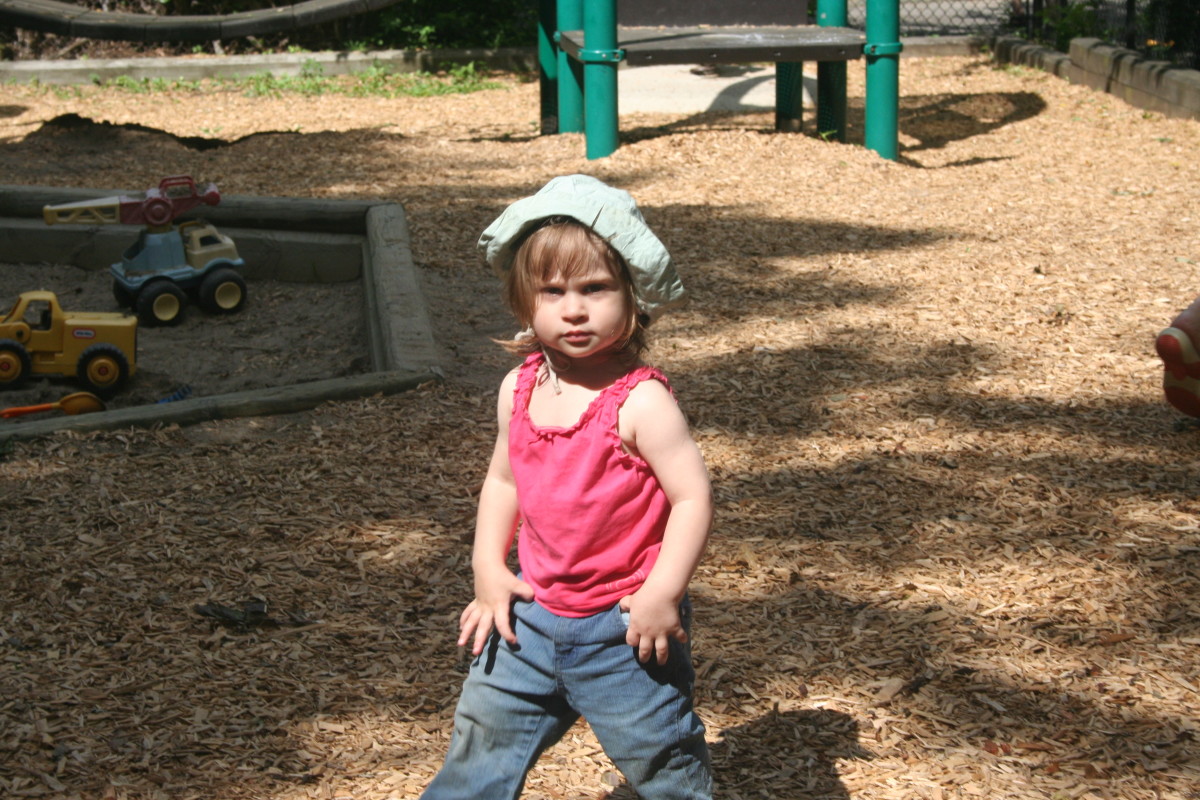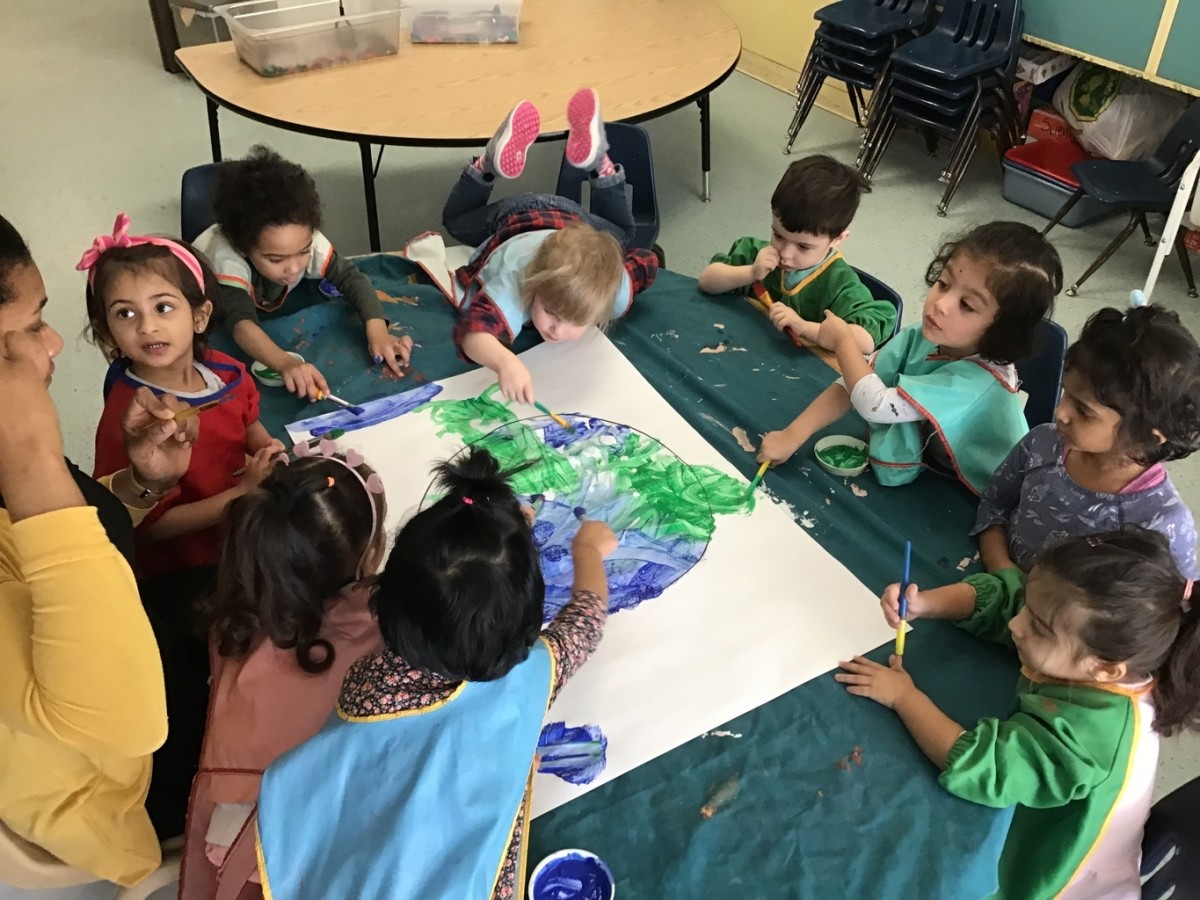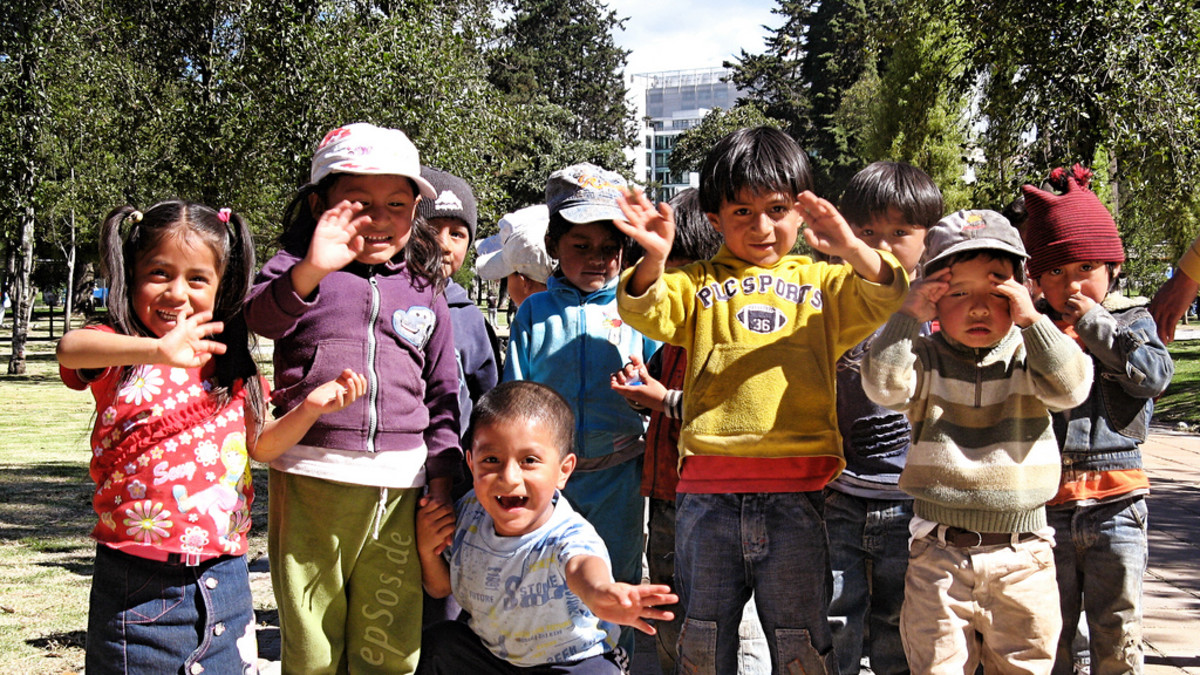Children and the Importance of Spending Time Outside in Nature
If you close your eyes and imagine, for a moment, an idyllic childhood, what do you actually see? My guess is that you see happy, laughing children cavorting about without the need for electronic gadgets and video games. I'm willing to bet you can also see them playing in the great outdoors - perhaps running wild in a green park or field; climbing trees; exploring the sea-shore.
These are all just ideas, but I think you get the picture. Most people's idea of an idyllic childhood includes the experience of nature and all things outdoors. Some people's ideas will be based on their own younger days, before excessive commericalism, high volumes of traffic and parental over-protectiveness. Perhaps you roamed freely in parks or woods, climbing trees and making dens until it was time for dinner? Maybe you can remember bygone days of collecting crabs from rock pools or trying to fish in a stream with a net?
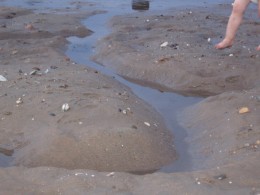
Intrinsically, We Are All a Part of Nature...
Over the years, childhood has changed quite a lot. For some of us, it has changed beyond all recognition. Children are much less likely to be playing outside of their home or garden than in years gone by. Unsupervised exploration has been heavily curtailed. Enjoyment of the great outdoors has dwindled, threatened by the growing presence of the media; by the opening of shopping malls on Sundays; by the increasing variety of laid-on entertainment. Children who live in certain built-up areas, particularly deprived estates, rarely see wide open, green spaces, much less play in them. And those with nature practically on their doorsteps often choose social media, computer games and other electronic devices over the simple pursuit of nature. But ignoring nature is like removing oneself from the very essence of the planet we live on. Nature has many benefits. It is good for the soul; both calming and therapeutic. Spending time in nature enriches the life of a child, and helps a young person to grow into a rounded, more content adult. It is a fact that nature can be an antidote to depression, lifting one's spirits almost instantly. Just think for a moment at how, on a day when you feel fed up, stressed or generally irritable, a stroll in the countryside, along the shore, or through an attractive garden or park can lift your spirits.
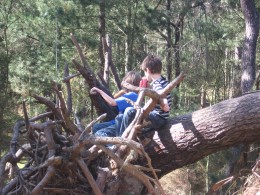
Increasing Concentration and Focus
It is, perhaps, interesting to observe that, on television programmes following the lives of young people struggling at school or at home, for whatever reason, nature is often used as a therapy tool. Helping out at a garden nursery; assisting with the improvement of a local area, such as a park; working as part of a team on an community outdoor project - these are all methods that have previously been used to help young teenagers focus on something worthwhile and to help them feel like part of a team. This raises self esteem, bringing about a sense of worth and positivity. Even for children who are not struggling, spending time in nature can aid learning.
Not only that, but spending time in nature has been associated with improving the behaviour of children with ADD and ADHD. Though I am in no way an expert on attention deficit disorders, I have read research on this assocation which seems to ring true. I have two children who do not have ADD or ADHD, yet I have observed that, when they are crazily climbing the walls at home and generally driving me insane (as children often do), an afternoon spent exploring the local woods can restore all peace and harmony upon return. Their concentration levels have improved, and suddenly they are able to focus more easily on quiet tasks, such as puzzles or construction toys. It is as though their minds have been calmed.
Perhaps rather obviously, the opposite is true of a child who is cooped up in the house for the best part of the day. It is even worse for children who have spent excessive time on computer games or other forms of social media. From my own personal experience, I have observed that children who spend a lot of time on computer games become 'hyped up' to the extent that they seem almost stressed. Studies have already shown that certain video games can raise the pulse and blood pressure.
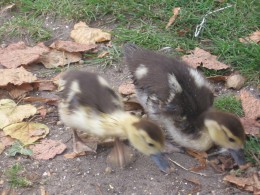
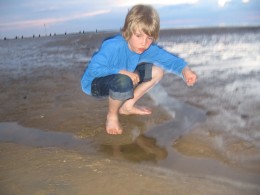
Nature as a Learning Tool
When we think of past generations of children given free reign to explore their natural surroundings, and compare this to many of today's young people, it is easy to come to the conclusion that children today have very restricted freedom. It is almost like comparing free-range hens to battery hens. Of course, this is a rather extreme example, yet no one would argue that the free-range hens are the happiest. Being able to explore one's natural environment helps the brain development of a child. Curiosity about the world helps a child learn. Discovering insects, searching for conkers and forcing them out of their shells, examining pond-life, watching ants around a nest, seeing fungi growing in a wood, even skimming stones across the surface of a river or sea - all of these things teach a child something about their world. Last summer, my mother had a wasp's nest in her garden and my children were greatly interested in taking it apart at the end of the summer when it was no longer used. Children earn without even realising it, because they are absorbed and they are having fun. They learn because they want to, which is in total contrast to the rather 'forced' learning that happens at school.
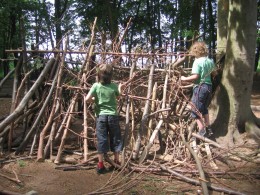
Unstructured, Imaginative Play
When left alone to their own devices, children are often intrinsically drawn towards nature as opposed to the structured activities and equipment that are provided for them by well-meaning adults. My local park is the perfect example of this. The park is an attractive and well-maintained area, and is very popular with families. It is a park with a very safe feeling about it, plus it is not too big. This has led to a lot of parents allowing their children to play virtually unsupervised throughout the park from around the age of six (sometimes younger), whilst the adults sit and chat on the grass.
The park has an enclosed, structured play area at the top, complete with swings, slides and climbing equipment. However, this is not the most likely place to discover children absorbed in play. This park is rather unique in that the gardens further down from the play area create a fantastic world of hidden places and secret, ready-made 'dens'. There are several small trees with branches low enough to enable even young children to climb up, and somehow swarms of little people are able to trample over the soil, behind large plants and underneath bushes without spoiling the park at all. It is almost as if the whole park was designed that way. Children play hide-and-seek, spies and all sorts of old-fashioned games, they seek out the best 'dens', find the best sticks and roam about for hours without a single murmur of that dreaded sentence 'I'm bored'. Play is creative and imaginative, evidence that children can still make their own fun without a single toy or gadget. In this safe setting, they experience a little bit of what childhood used to be about, and then they go home happy with dirt in their nails and fresh air in their lungs.

Growing Food
Growing plants and vegetables provides a child with a sound base of the food he or she consumes, and where it comes from. Shockingly, children questioned in an inner city primary school some time back were not able to identify some common vegetables. Some did not even realise that chips are made from potatoes. Getting involved with food production can educate a child about the benefits of healthy eating, and provide them with the knowledge to make the right decisions for the future. Not only that, but young children usually enjoy digging about in the dirt, planting seeds and watering. You may even find that your treasured crops get a lot more water than is strictly necessary. It's a good idea to set aside a section of soil where children can dig and do whatever they like, especially if they are not very old. The importance is on having fun and getting stuck in, not being restricted by too many rules.
Today, if we were led to believe the constant hype around the marketing of anti-bacterial sprays and soaps, we would assume that all germs and bacteria need to be eliminated for the benefit of our family's health. However, a healthy immune system has to come into contact with bacteria in order to become strong and fuctional. Bacterias found outside in soil can actually help to boost our children's immune systems.
Incidentally, children who grow up on farms have been found to be at a lower risk of developing asthma. Studies indicate that this is due to the microbes found on the farms which are encountered by their immune systems. It indicates that the high statistics of childhood asthma and related allergies could be, in part, the result of a generation that is just too clean. Advertising campaigns would have us all believe that every germ is a threat. The healthiest children spend time outdoors in natural environments, and return home grubby with a healthy glow.
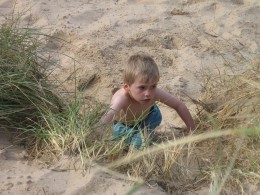
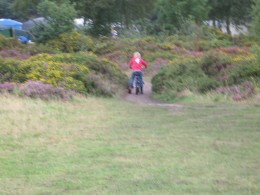
An Essential Part of Childhood
There are many benefits to children playing, learning and spending time in nature. Nature offers children the chance to absorb themselves in the natural world and forget all the artificial distractions of modern life. Nature teaches children about the world they live in, in a fun manner. Woods, parks and coastal areas all provide children with the opportunity to run off steam; to climb; to explore; to discover and to feel free. The air around places of nature is cleaner, calmer and heathier. There is little doubt about it, spending time outside with nature should be an essential part of childhood.

